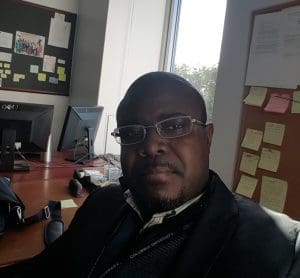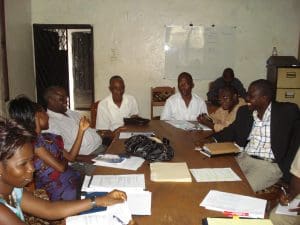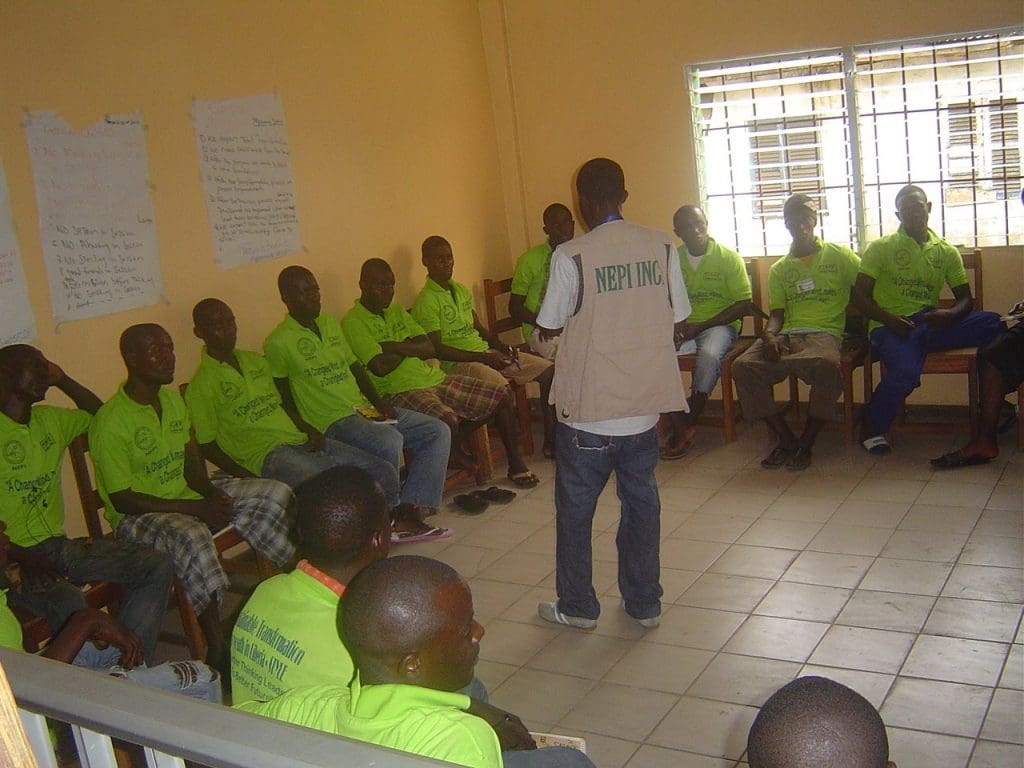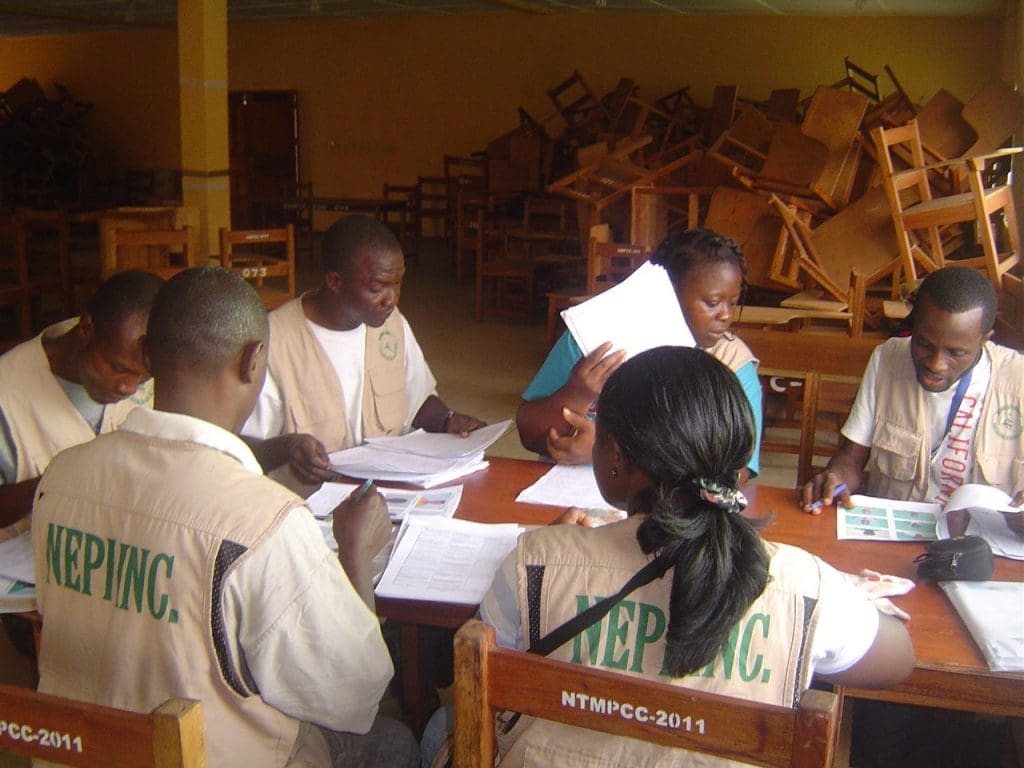Bridging Peace Through Empowerment. Member Spotlight: Klubosumo Johnson Borh

Klubosumo Johnson Borh
Today’s ever-changing, multi-layered conflict dynamics demand robust actions such as the empowerment of both victims and perpetrators to become key partners in building and sustaining their peace. This strategy has proven to be exceedingly effective in fostering sustained social cohesion, community resilience, and integration. One peacebuilder that is taking full advantage of this approach is Klubosumo Johnson Borh, a Liberian social justice activist and peace advocate.
Like many contemporary conflict resolution practitioners, Johnson has narrowed his focus to empowering Liberia’s ex-combatants to become strategic change agents within their communities. He terms it “from destruction to construction”—a proactive effort directed at transforming ex-combatants into meaningful citizens rather than threats.
Speaking in an exclusive interview with MBBI on November 16, 2018, Johnson stated that Liberian ex-combatants are still in dire need for trauma and psychosocial healing. Liberia, Johnson’s native land, is recovering from a 14-year civil war that destroyed its socio-political and economic fabrics to unimaginable limits. It is a small state located on the West coast of Africa. From 1989-2003, one of Africa’s bloodiest civil wars was fought in Liberia, claiming the lives of more than 250,000 Liberians and dispatching a million others to refugee camps in neighboring countries.
As the war progressed, warlords began recruiting children into fighting forces. They exploited the fact that children are exceedingly obedient and do as instructed. And it worked. [Unfortunately], children that grew up under such circumstances became staunch loyalists and were used to carry out atrocities against the peace of the state.
Firsthand Experience

PCL-MBBI Dialogue Training for Local Partners
A former child soldier, Johnson recalls that “young children that were conscripted were mentally destroyed. They were dehumanized beyond measures. They were made to believe that violence was an acceptable way of life. They were told that the guns in their hands were their mothers and fathers—their sole source of livelihood. They were also told that they could use guns to get whatever they wanted.”
Johnson was conscripted into the National Patriotic Front of Liberia (NPFL) of former warlord and president, Charles Taylor. He was captured and compelled to join the NPFL in early 1990:
I am one of those young Liberians who lost their youth to the war. I was conscripted at age 19. I encountered NPFL fighters in Kakata, Margibi County. It was a quiet evening. I had walked up the street in search of food when the soldiers drove by. They immediately threw me into the back of their pickup truck. According to them, I was on ill-war—meaning, I was a soldier who had abandoned his post. I was physically abused, starved, made to sleep in the cold and took bath in filthy water. Warlords believed these were the only way to prepare for the frontlines. I left the group when I got injured on my left arm in February 1993.
Network for Empowerment and Progressive Initiative, NEPI
With such a firsthand experience, Johnson was fired up to help other young Liberians that were trapped behind frontlines and being brainwashed to commit violence. In 2000, he established the Network for Empowerment and Progressive Initiative (NEPI). NEPI’s sole goal at the time was to discourage young Liberians from allowing themselves to be exploited by fighting forces.
Following the completion of the UN-run disarmament, demobilization, rehabilitation, and reintegration (DDRR) program in Liberia, NEPI swiftly focused its mission to empowering ex-combatants to become economically self-reliant; a strategy aimed at breaking the bond between warlords and ex-combatants. NEPI successfully achieved this mission through the provision of capacity development opportunities, while paving the way for smooth rehabilitation (trauma and psychosocial healing) and reintegration.
And while communities resented the reintegration of ex-combatants, Johnson’s approach helped them realize need to accept these young men and the danger communities may further face if former fighters were rejected, such as the possibility of them preying on their communities as armed robbers. While such efforts helped communities enjoy an extended tranquility and stability, there was one thing that had to be done before the full reintegration of ex-combatants.
They were exposed to traditional cleansing rituals as a way of ensuring that everyone was on the same page. During the cleansing process, ex-combatants acknowledged their wrongdoings, confessed, took full ownership of their actions and sought forgiveness from their victims. Traditional leaders served as chief peace brokers during these exercises.
Meanwhile, NEPI is currently on a mission to reduce abject poverty and violence among Liberian youths through economic empowerment. It currently serves five of Liberia’s 15 counties: Montserrado, Nimba, Grand Bassa, Bomi and Lofa counties. Plans are also underway to further expand into other counties once desirable funding becomes available.
Johnson has developed a transformation program that offers rigorous evidence and innovative models focused on reducing violence and organized crimes among former child soldiers, ex-combatants and at-risk street youths. The 8-week psychosocial and cash transfer program also facilitates the rehabilitation and reintegration of beneficiaries into mainstream society.
 |
 |
|
NEPI Sustainable Transformation for Youth in Liberia (STYLE) |
|
Brief Bio
A global peace researcher, Klubosumo Johnson Borh’s peace and development works transcend Liberia’s borders into other parts of the world, including Asia, Uganda, Kenya, Malawi, Ghana, and the United States. As a budget and Truancy Assessment Program (TAP) program manager at Columbia University’s Center for Sustainable Development, Johnson has blended rigorous academic theory with real-world practical knowledge of conducting cutting-edge research and developing innovative solutions to support governments and organizations around the world to achieve the Sustainable Development Goals. He has developed and implemented youth empowerment projects in India and Uganda. The TAP is a new prevention and intervention program designed to reduce chronic absenteeism with the use of a simple biometric tracking system, attendance, paired with a table and a fingerprint scanner. Johnson is a seasoned peace facilitator and trainer. He is a husband and a father.
Article by Fatoumata Bility, MBBI Writer
